It was a video game ahead of it's time; a masterpiece that laid the foundations for a new way of understanding action adventures ... and yet it did not triumph. Fortunately, the classic of Appeal comes back to life, almost 20 years later, with a remastering that meets the minimum but leaves a bittersweet taste.
Duration
It's very well the idea of bringing back the title, with it's excellent duration (according to your game style, you can go until 10 hours, if you get to explore, although this is already free and there will be someone who will finish it in less, like me)Gameplay
With a few days to avoid disaster, the ex-soldier Cutter Slade - main character - must escort a mission of three scientists who will try to reverse this threat. Upon crossing the portal, Cutter wakes up alone in a small village of natives, separated from their peers and with much to learn from this new culture that in certain aspects seems a few centuries behind that of the Earth. A story of science fiction in exotic worlds, innovative, in a time when the foundations of the 3D worlds were still being established and everything was to be defined.
Outcast is a game of exploration and action in the third person, focused on both conversations and shootings, because many times, you will have to use your weapons or fists. A reputation system reflects how the natives of the area will see you, helping their orders make this deal more friendly, but a more aggressive behavior will also have it's repercussions, in actions or dialogues. This interaction with the world, allows you to weaken enemy soldiers, cutting off their supplies to reduce vitality or offensive power. In short, the open world is not only in terms of extension, but also in the freedom of your actions.
One of the peculiarities of the game was in the system of saved, using a device that when being used called the attention of nearby enemies. In Second Contact it's also available, although the auto-save will take care of saving your state in a more silent and constant way -near any camp with enemies-, softening a little the difficulty.
Outcast - Second Contact, continues to maintain much of it's magic. Obviously, many of the details of it's mechanics or artificial intelligence have lost the ability to surprise and probably some players will not assess the extent of Outcast's progress. This is the most controversial aspect of analyzing a remake, because it's difficult to leave aside the nostalgia and the merits achieved almost 20 years ago. Is it a good remake to modify the essential or should it update it's gameplay?
There are aspects that have remained more or less identical and that will immediately remind me of the classic gameplay. Second Contact has not been "contaminated" by a system of coverage or new influences - although it does have minor improvements or changes - so in the shootings it's more about dodging the shots constantly changing positions or interposing an obstacle, and the screen, it's not flooded with markers of your next objective.
The control and the camera can be a little hard at the beginning, a lot if you are not used to the camera shift on the shoulder and this type of pointing, which doesn't always respond with the right precision - hence the option to aim automatic, which it can be deactivated
Graphics & Design
Visually everything has been renewed: textures, modeling and effects. The classic locations are perfectly recognizable, but with a much better graphic quality, especially the open areas; the interiors, on the other hand, are a bit soulless. This positive impression is somewhat tarnished by the animations -during the game or the dialogues- and small errors with the geometry of the stage, since it's easy to get caught between rocks if you try to do some experiment with the jumps in places that are not prepared for it.
The soundtrack, with clear inspiration in John Williams and Star Wars, is outstanding. Outcast was also a pioneer in this, because it wasn't so common in the 90s to have orchestral music and choirs, performed by the Moscow Symphony Orchestra. If perhaps his sin is that sometimes it has too much prominence when the sound is very epic and in the game you are not doing anything special, but it is a very forgivable "fault".
Conclusion
For the newcomers maybe i recommend it with more reserves, because it will not be so easy to see the huge legacy left by Outcast, a game that even today, with just a layer of new paint, shows an ambition that few releases dare to match. It's not a perfect game, and perhaps it never was, but it is part of the history of the industry.
- Game: Outcast - Second Contact
- Developer: Appeal Studio
- Publisher: Bigben Interactive
- Genre: Action-Adventure, Open World
- Price: $39.99
- Size: 8.53 GB
- Release date: November 28th 2017
- For more info: http://www.outcast-universe.com/project/outcast-second-contact/
- Download from Microsoft Store





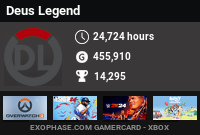
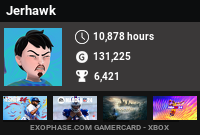
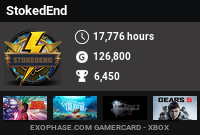
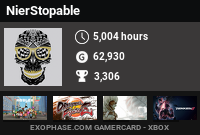
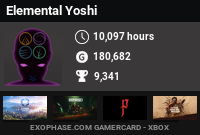







0 comments:
Post a Comment
Please be respectful and no spam.